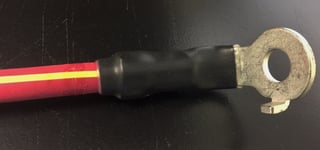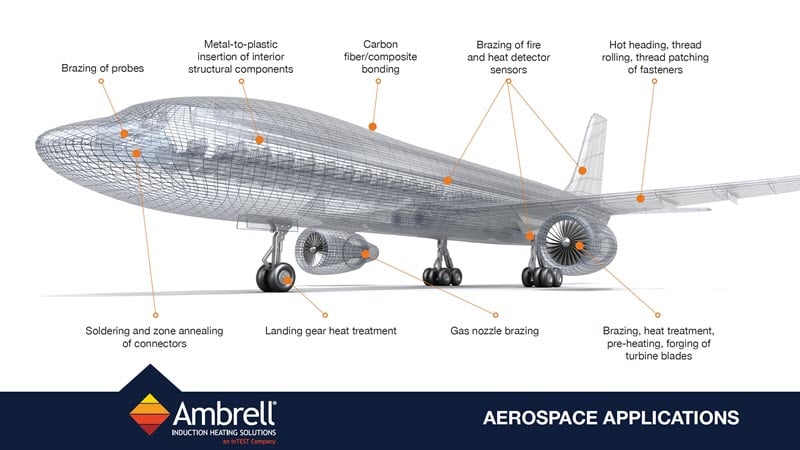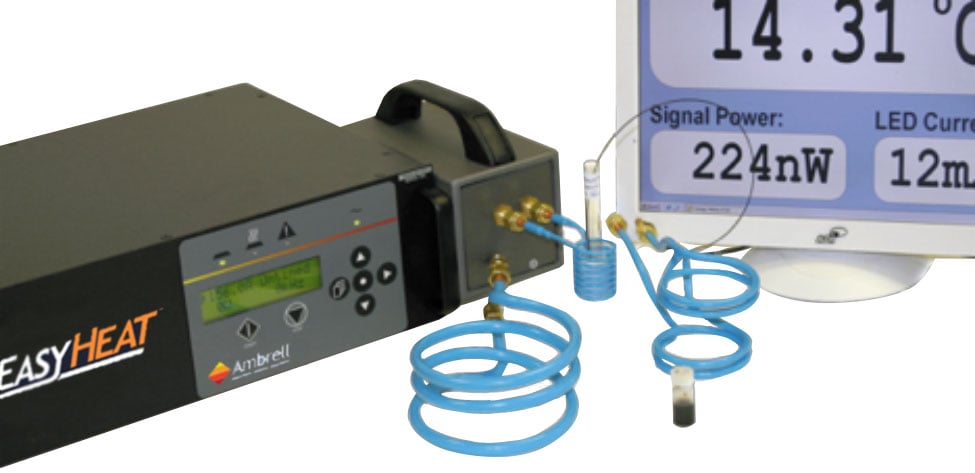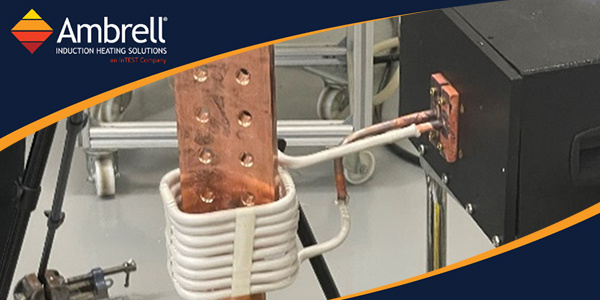Applications for Induction Heating in Aerospace and Defense
Induction heating is a process that uses electromagnetic fields to heat electrically conductive materials. It has been used in numerous industries...

An automotive supplier turned to Ambrell because they needed to heat eight different automotive battery cables to melt adhesive. Doing this provides extra sealing around the end of the shrink tubes. The battery cable is aluminum with copper ends. They were using an oven but needed to leverage induction to further heat the cable to help the glue adhere.
THE LAB at Ambrell designed and built a U-shaped coil for this application. Temperature indicating paint was applied to the parts, and it took 10 seconds to heat the various styles of the part to a target temperature of 550 °F (288 °C). An Ambrell EKOHEAT 15 kW, 50 to 150 kHz system was used for this application.
THE LAB successfully confirmed the viability of this application. Induction's rapid heating was a key factor as was its ability to precisely heat one area of the part. Of course, THE LAB's expertise was also critical. You can read about other automotive applications using induction heating on our website.

Induction heating is a process that uses electromagnetic fields to heat electrically conductive materials. It has been used in numerous industries...

Induction heating, a process that uses electromagnetic induction to heat electrically conductive materials, is often thought of for large industrial...

Objective A company had been using a flame for brazing copper assemblies to make electrical components, but they contacted THE LAB at Ambrell because...